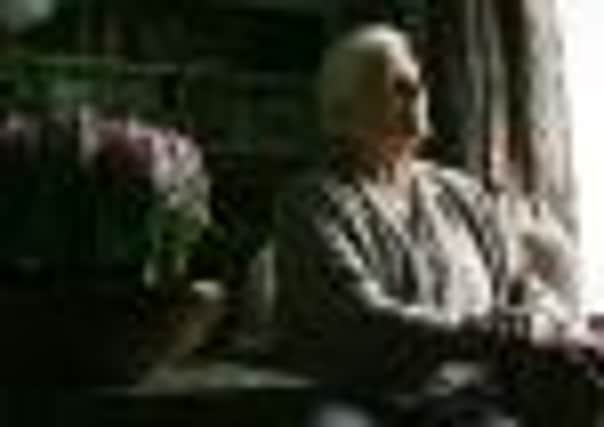Book review: Instead of a Book: Letters to a Friend


If you’re lucky enough to have Athill’s wit, articulacy, charm and heroic genes, you can do it when you’re very old indeed. Her first hit, the autobiographical Stet, was published in 2000 when she was 82. Her latest, Instead of a Book, appears in her 93rd year. Diana Athill is a phenomenon, the Miss Marple of memoir.
She is hardly new to publishing. As Stet records in frank and winning detail, Athill was the right-hand woman – “the finest editor in London” – at André Deutsch’s publishing house from the 1950s to her retirement in 1993. There she edited the work of Philip Roth, Norman Mailer, John Updike, Jean Rhys, Jack Kerouac, Margaret Atwood, Laurie Lee, VS Naipaul and others. Athill the author is the equal of some of her former charges and better than many.
Advertisement
Hide AdAdvertisement
Hide AdHer previous books have been autobiographical accounts of her childhood, her career and her old age, and biographies of notable former friends. Of the two genres, Athill on Athill is by far the most successful, possibly because Athill is more interesting than her friends.


She reminds us that strong and independent career women existed before the 1980s. Her freewheeling sex life – she never married and never felt a moment’s guilt about sleeping with men who were – suggests the influence in her formative years of such inter-war advocates of “free love” as Bertrand Russell, Wilhelm Reich and HG Wells. When Germaine Greer published The Female Eunuch in 1970, Athill was 52 years old and had anticipated its philosophy for three decades.
Instead of a Book is a collection of her letters to a contemporary, the American poet Edward Field. Their correspondence began in 1980 when, in Athill’s words, she had “become free to love men without wanting to go to bed with them”. That development must have brought relief to a number of Hampstead wives. It would not have concerned Field, who is hawkishly handsome, six years younger than Athill, and lives with Neil Derrick, his partner of long standing.
Both Athill and Edward Field contribute an introduction to this volume. Field’s includes a wonderful first impression of the legendary editor at Deutsch: “Neil immediately said ‘county’ … [her accent] speaks of country houses, horsemanship, the Empire and the Ruling Class …” The letters are all one way, from Athill to Field. After receiving them for over 20 years, Field and Derrick decided that they cried out to be published.
They were right. Athill could write letters to God. It is probably a legacy of her 50 years of editing that she writes casually as well as she writes professionally. Her prose has an easy discipline. All of her trademark qualities are displayed in the letters – her frankness, her positive attitude, her wit and her humanity. They make her ruminations on such topics as the infirmities of old age as fresh as if Athill was the first elderly person to discover high blood pressure and deafness.
The star of the first half of the book is André Deutsch – or rather, the relationship between Athill and Deutsch. Their long love-hate affiliation is touched upon in Athill’s earlier memoirs. In her letters to Field she takes off the velvet gloves. She admits that she herself would never have started a publishing company. But Athill felt for many years that she was given neither the recognition nor the financial reward that she was due from André Deutsch, the person and the business. In her view the Deutsch publishing house was a partnership from which the male partner took all the kudos and the cash, while the other was left with a meagre old age pension.
André Deutsch and Diana Athill were almost exactly the same age. He was born in Budapest in November 1917 and she in Norfolk a month later. Early in 1988 she tells Field that while André’s 70th birthday had been the subject of national broadsheet celebration, she had to settle for an office party and a CD player. She blames herself for failing to fight for a more equitable “distribution of honours … I was raised in a setting where fussing about money was pretty vulgar”. County, indeed.
Advertisement
Hide AdAdvertisement
Hide AdDeutsch died in 2000. His demise released Athill in a couple of ways. She no longer had to worry about libelling him in Stet, and she was finally freed from the shadow of the “tyrannical little shit”.
She has never looked back, and has never stopped looking back wisely, caustically, cleverly. Her memoirs have transformed her from retired backroom girl to national treasure. She deserves it. She was horrified at a literary occasion to find herself seated next to Salman Rushdie. Smalltalk with the great man would be impossible, Athill reasoned, “because I’ve never been able to read him.” That – from the editor of Mailer and Roth – justifies her OBE.
When Athill was young her father advised, “Never write a letter which you would blush to see published in the correspondence columns of the Times”. Luckily for all of us, she ignored that advice.
Or did she? It is difficult to imagine Diana Athill blushing.
• Instead of a Book: Letters to a Friend by Diana Athill. Granta, 304pp, £20